Entry 26 — The Doubled World of JoAnne Growney
The Doubled World of JoAnne Growney
a book review for Amazon that Amazon won’t accept, so far, because it won’t accept my password.
As I read the 22 poems in JoAnne Growney’s Angles of Light (all but two a page in length), I quickly became aware of the wide range of subject matter they cover. The two poems facing each other on pages 12 and 13 are excellent examples of this. One, “Can A Mathematician See Red?” is about the mathematical representation of objects, and more “unemotionally” abstract than that it would be hard to get; the other; “Keeping Watch,” concerns a woman visiting her hospitalized mother, and gets about as emotionally unmathematical as you can get as it plumbs the depths of a complex human relationship.
In “Can a Mathematician See Red,” the poet considers a sphere “whose points seen outside/ are the very same points/ insiders see.” If red paint is spilled over this sphere, what color, the poet wonders, would the sphere’s interior be. Red? A mathematician’s answer, the poet tells us, would be, “No,/ the layer of paint/ forms a new sphere/ that is outside the outside/ and not a bit inside.” Conclusion: “A mathematician/ sees the world/ as she defines it.” But, she continues, “A poet/ sees red/ inside.”
Among the many things I like about this poem is its crisp contrast of mathematical reality with physical reality, an immaterial sphere with something able to take a coat of paint. It brings to life the magnitude of the most genuinely real world, which I take to be the physical world, with the mathematical world enmeshed in it, but perceptible only to asensual cognition. Even more, I love the way it provokes follow-up questions–at least from intellectual types like me–such as whether it would be possible to paint a mathematical sphere–as opposed to a glass sphere, say, which is emulating a mathematical sphere. In other words, it put me back in Athens with Socrates and Plato. . . .
Except for “Horizon,” which compares the universe before darkness was created, and ends, “Divided/ into complexity/ Eden disappears,” the other poems in the collection are concern people, or landscapes, rather than ideas, so do not require the specialized taste to appreciate that “Horizon” and “Can a Mathematician See Red?” may.
Not that they aren’t equally penetratingly thoughtful. In “Keeping Watch,” which concerns a visit to the mother’s hospital bed by the poet, for example, Growney movingly captures in a minimum of words the kind of person (considerate, courageous) her mother is, and wholly captures the love/opposition she feels for her, a woman able to bear her pain “because her Christian Faith/ holds Paradise against my dark resistance/ to believe in Hell or Christ.”
This poem, incidentally, is a near-sonnet, like three other poems in the collection–that is, it pretty much adheres to sonnet-form except near-rhyming or not rhyming more than traditionally rhyming, In general, Growney’s poems intriguingly skitter between technical formality and supple free verse.
“Thoughtful,” a word I’ve already used for them, may be the best adjective to describe the bulk of poems in this collection. With “wry” a close second. Take, for example,
9 syllables
Mock feelings
serve as well
as true ones.
Or:
11 Syllables
Obedience covers
with a thin layer.
The poet’s mother, according to the first poem in the book, “Write from the Beginning,” is a woman “who cries/ when she’s happy, who talks fast/ when she’s tired, who acts silly/ when she’s sad is a central subject of Growney’s poems. In “Present Tense,” Growney describes her as “a terrifying/ woman. She eats anything./ I dreamed when the sun rose/ she’d be a brick wall.// She is.” Her mother is in “Stories,” too, along with her father and her childhood on the family farm. She “loved God and Esther Williams” after her husband died, “Symmetry” tells us. The farm is the setting of “Things to Count On.” At its end, Growney writes that her “mother’s a good woman, worth three good women. For sixty years everyone has thought so, and more than a hundred have said. I’ve stopped counting.” The final poem about Growney’s mother is the one already discussed, “Keeping Watch.”
Several of the poems have to do with love–“Today at the Grocery Store I met the Man I Loved,” for instance–which ends, “In the grocery aisle, we spoke of the weather/ in our separate parts. Floods and storms/ have abated. Nothing separates our hearts.” A few landscapes make it into the collection, snow, a night sky–and in the last poem in the book, its longest, “Three times the size of Texas,/ Alaska–with fewer living species/ and fewer miles of paved roads/ than Rhode Island.”
This poet clearly sees red strikingly well, and a lot more.
Bob Grumman


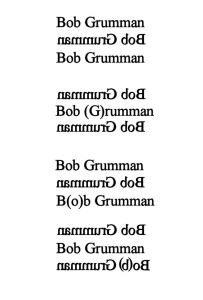

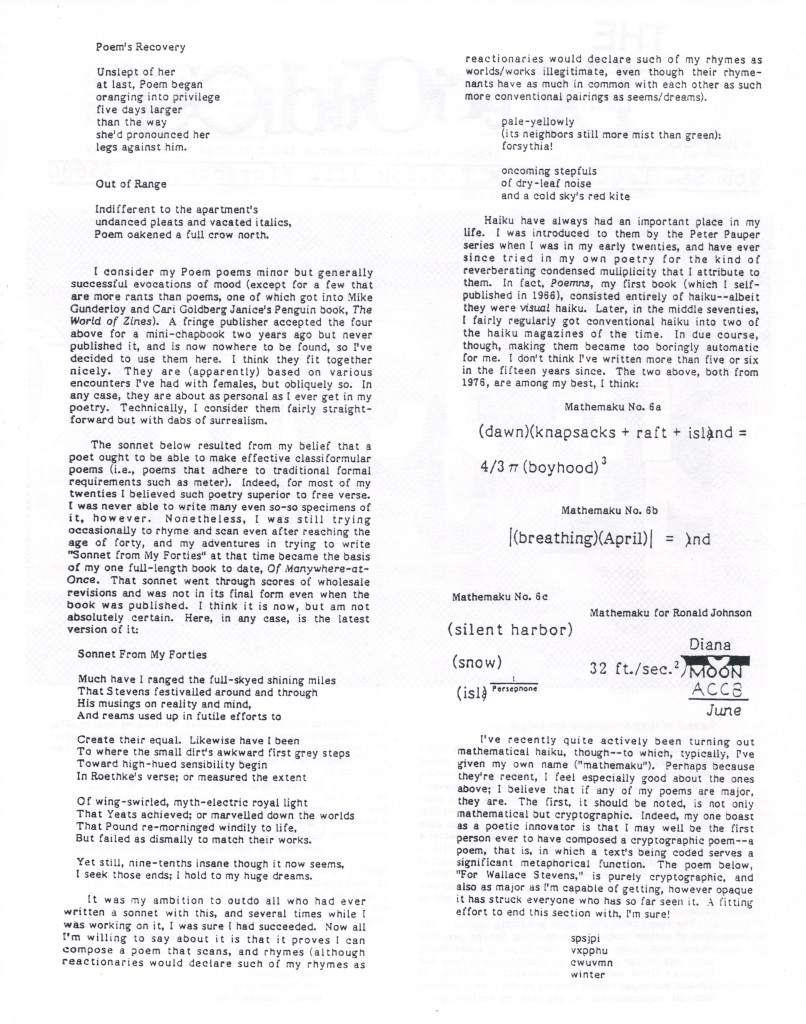

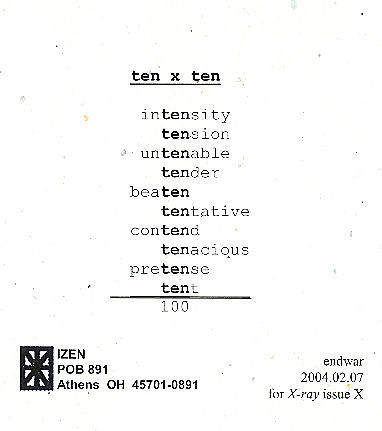 As I announced when I first posted this, I am hoping to publish an anthology of mathematical poems, like this one, so if you have one or know of one, send me a copy of it, or tell me about it.
As I announced when I first posted this, I am hoping to publish an anthology of mathematical poems, like this one, so if you have one or know of one, send me a copy of it, or tell me about it.

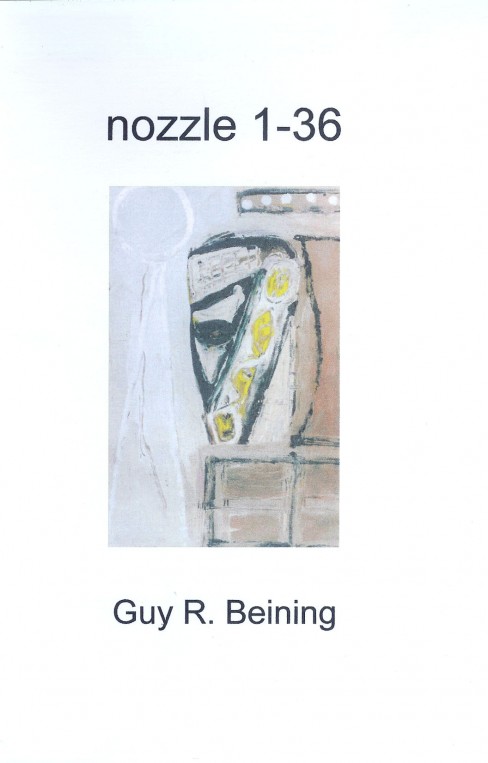
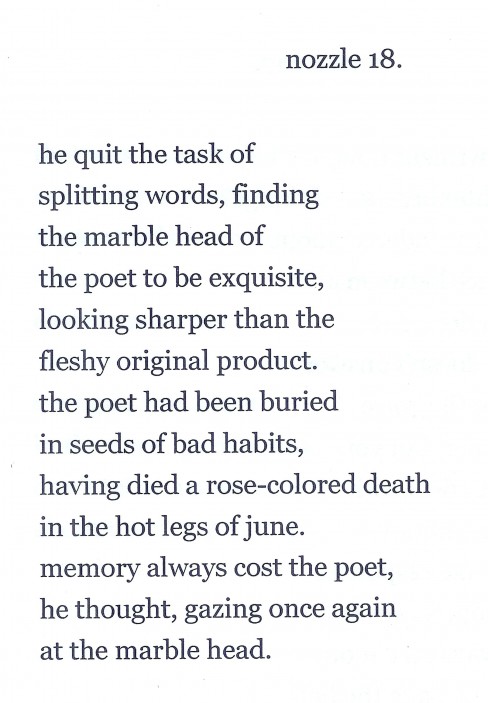
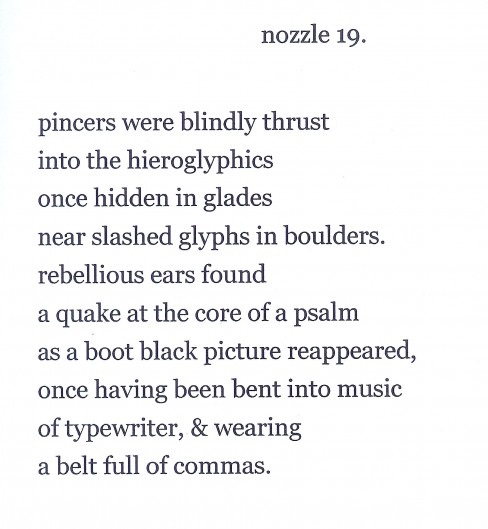
“What most makes the poem a good one, though, is its freshness–the unexpectedness of its infraverbal twist.”
A superb statement of haiku impact, Bob. And I, too, happen to see the haiku potential in pwoermds, especially of the Huth variety. Geof has a genius for them, and some of them have hit me with the same force as the very best haiku.
And thanks for promoting the Canada haiku scene: we usually get lost sometimes in the transborder discussions
Thanks for the kind words, Conrad. I do think I’m pretty good as a haiku-commentator. And I’m always glad to publicize LeRoy Gorman’s excellent haiku review, which seems to me the best periodical around for haiku and haiku-related poems.